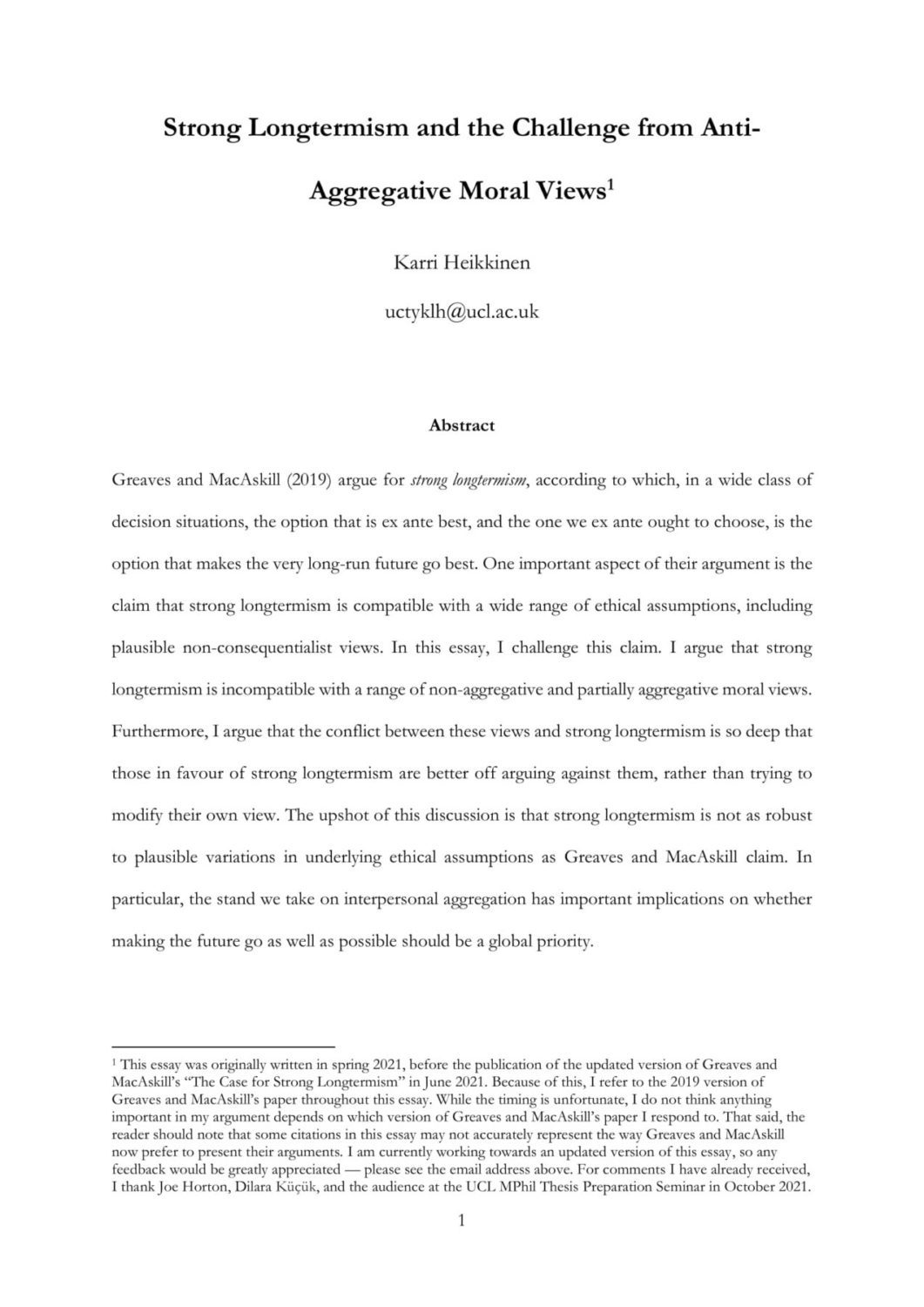Strong longtermism and the challenge from anti-aggregative moral views
Karri Heikkinen (University College London)
GPI Working Paper No. 5 - 2022
Greaves and MacAskill (2019) argue for strong longtermism, according to which, in a wide class of decision situations, the option that is ex ante best, and the one we ex ante ought to choose, is the option that makes the very long-run future go best. One important aspect of their argument is the claim that strong longtermism is compatible with a wide range of ethical assumptions, including plausible non-consequentialist views. In this essay, I challenge this claim. I argue that strong longtermism is incompatible with a range of non-aggregative and partially aggregative moral views. Furthermore, I argue that the conflict between these views and strong longtermism is so deep that those in favour of strong longtermism are better off arguing against them, rather than trying to modify their own view. The upshot of this discussion is that strong longtermism is not as robust to plausible variations in underlying ethical assumptions as Greaves and MacAskill claim. In particular, the stand we take on interpersonal aggregation has important implications on whether making the future go as well as possible should be a global priority.
Other working papers
A paradox for tiny probabilities and enormous values – Nick Beckstead (Open Philanthropy Project) and Teruji Thomas (Global Priorities Institute, Oxford University)
We show that every theory of the value of uncertain prospects must have one of three unpalatable properties. Reckless theories recommend risking arbitrarily great gains at arbitrarily long odds for the sake of enormous potential; timid theories recommend passing up arbitrarily great gains to prevent a tiny increase in risk; nontransitive theories deny the principle that, if A is better than B and B is better than C, then A must be better than C.
Estimating long-term treatment effects without long-term outcome data – David Rhys Bernard (Paris School of Economics)
Estimating long-term impacts of actions is important in many areas but the key difficulty is that long-term outcomes are only observed with a long delay. One alternative approach is to measure the effect on an intermediate outcome or a statistical surrogate and then use this to estimate the long-term effect. …
In defence of fanaticism – Hayden Wilkinson (Australian National University)
Consider a decision between: 1) a certainty of a moderately good outcome, such as one additional life saved; 2) a lottery which probably gives a worse outcome, but has a tiny probability of a far better outcome (perhaps trillions of blissful lives created). Which is morally better? Expected value theory (with a plausible axiology) judges (2) as better, no matter how tiny its probability of success. But this seems fanatical. So we may be tempted to abandon expected value theory…

